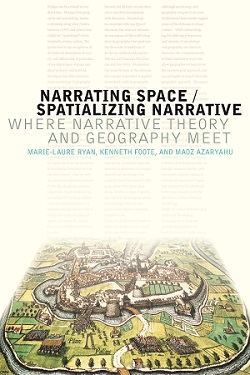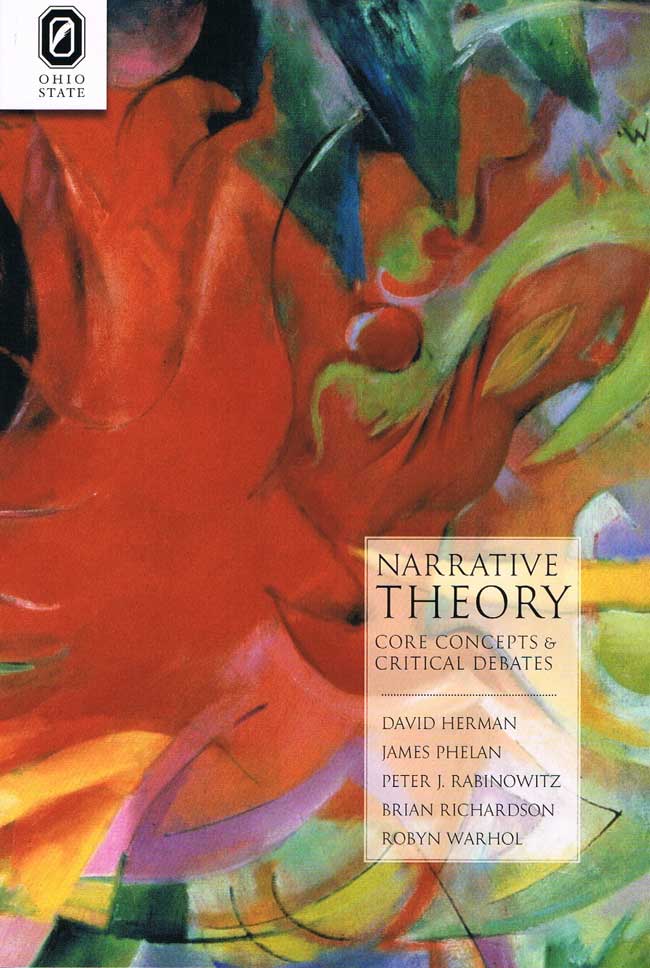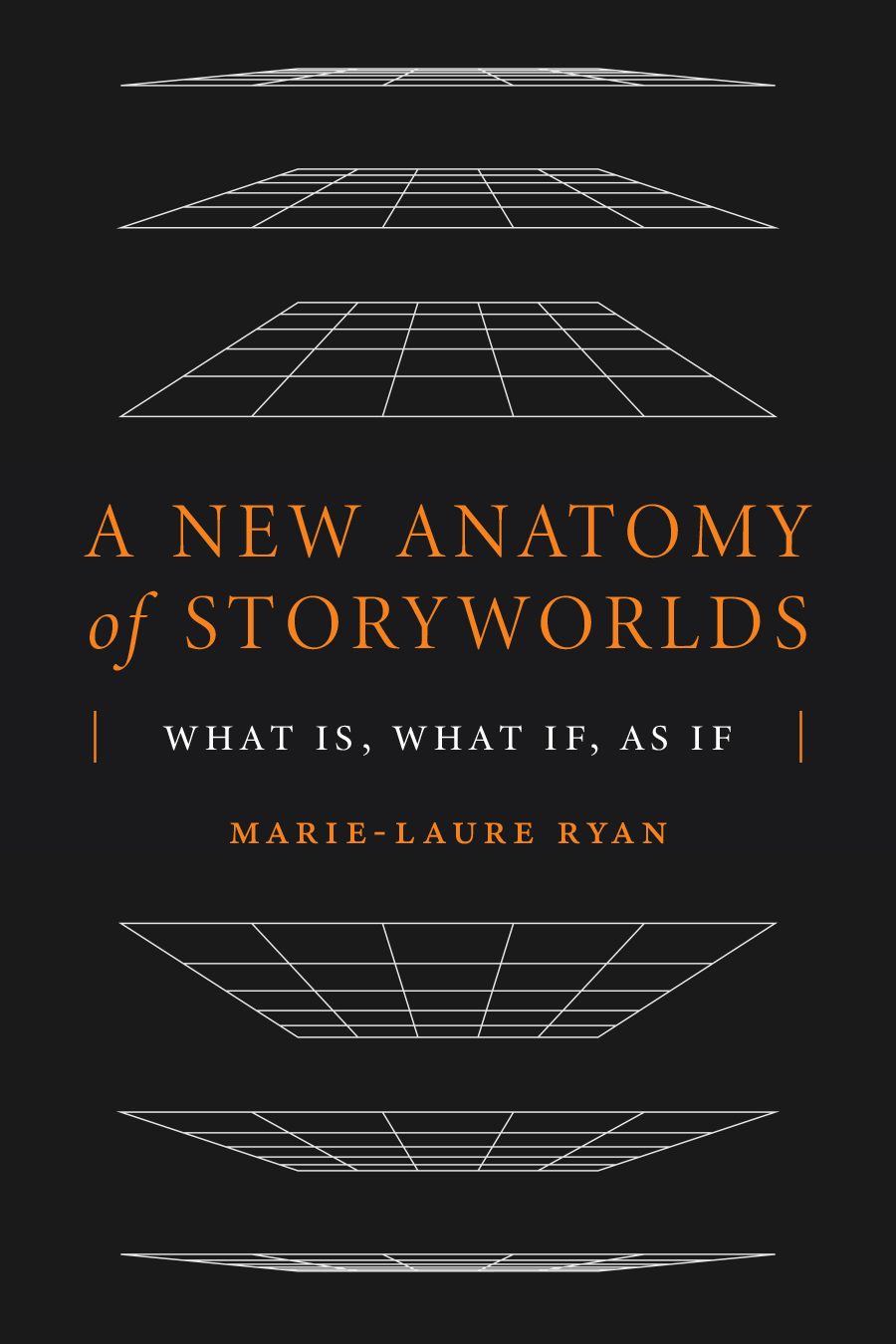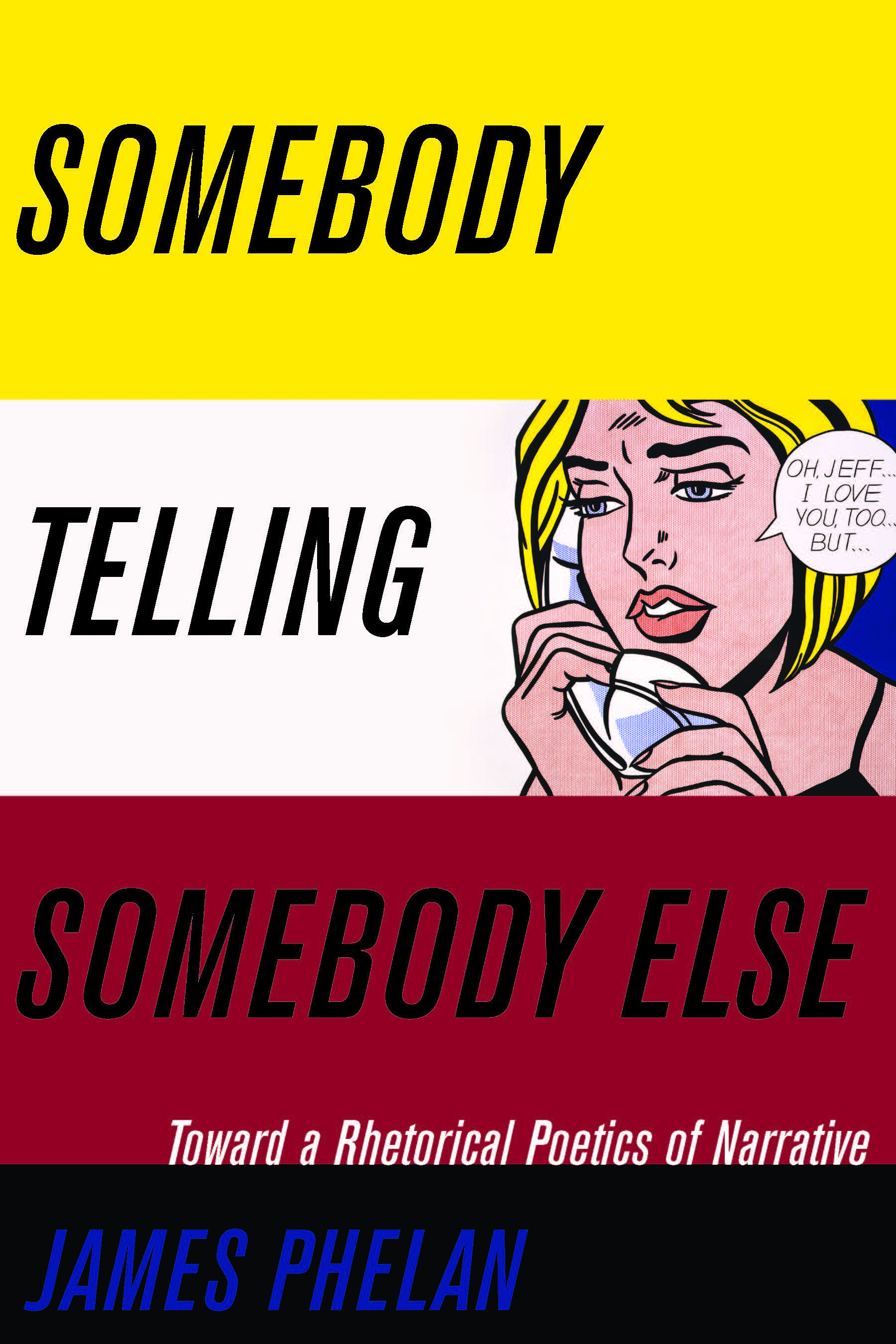“Drawing on her encyclopaedic knowledge of narratology and its adjacent disciplines from decades of research, Ryan deftly navigates controversial debates in narratology. … The writing is engaging and lucid with much to offer both well-versed narratologists and students new to narrative theory alike. … Ryan’s numerous provocations will no doubt illuminate, inspire, and excite.” —Denise Wong, Modern Language Review
“A New Anatomy of Storyworlds: What Is, What If, As If offers a rich and useful survey of the possible-worlds approach to narrative theory. Those wishing to explore beyond the more well-known approaches of postclassical narratology will find in Ryan’s work a valuable method, grounded in narrative worlds and their immersive potentials.” —Brian J. McAllister, Anglia
“Ryan leaves other critics with a well-stocked toolbox for future analysis. … A New Anatomy of Storyworlds is a rigorous and ambitious exploration of the concept of storyworld in nearly every corner of the narratological map.” —Jon Hegglund, DIEGESIS
“For me, the more impactful academic writing is not that which convinces, but that which offers information and thought in a way that supports me in considering the topic. A New Anatomy of Storyworlds: What Is, What If, As If achieves that on a multitude of levels. … It was refreshing to find such a useful book that brings together concise foundational thought on topics typically scattered across disciplines and texts.” —Edward Wells, South Central Review
“A New Anatomy of Storyworlds is a lucid and inspiring book. Apart from updating and developing the terminology of Ryan’s framework, it participates in an impressive number of classic and recent theoretical debates. … Perhaps one of Ryan’s best books to date.” —Jeppe Barnwell, Society for Danish Language and Literature
The question of how narratives actually do the work of world-building transcends disciplines: from cosmology to philosophy, digital culture, popular culture, and literary theory. In A New Anatomy of Storyworlds, Marie-Laure Ryan investigates the narratological importance of the concept of world in its various manifestations. She uses a wide array of works—from Sokal’s hoax to Maus, from Saussure to Barthes, from Kafka to virtual reality—to interrogate key narratological concepts. By revisiting and redefining concepts such as narrator, plot, character, fictionality, mimesis, and diegesis, Ryan reexamines the major controversies that have enlivened narratology: Does narrative necessarily involve a narrator? Is the notion of implied author useful? Do texts that challenge our experience of the real world require a different narratology? Is the distinction between fictional and factual narratives gradual or binary? Ultimately, Ryan grounds narratology in the concept of world to propose an alternative to the rhetorical, feminist, unnatural, and cognitive approaches that currently dominate the field, thus broadening the frame through which we view story and world-building.
Marie-Laure Ryan is an independent scholar based in Colorado. She is the author of Narrative as Virtual Reality: Immersion and Interactivity in Literature and Electronic Media and coauthor, with Kenneth Foote and Maoz Azaryahu, of Narrating Space/Spatializing Narrative.
Contents
Acknowledgments
List of Illustrations
Introduction Grounding Narratology in the Concept of World
Chapter 1 Truth: Discourse Types and Theories of Truth
Chapter 2 Fiction: The Possible Worlds Approach to Fiction and Its Rival Theories
Chapter 3 Narrator: Decomposing a Theoretical Primitive
Chapter 4 Characters: Textual, Philosophical, and “World” Approaches to Character Ontology
Chapter 5 Plot: Cheap Plot Tricks, Plot Holes, and Narrative Design
Chapter 6 Mimesis and Diegesis: Complementing Each Other
Chapter 7 Parallel Worlds: Physics, Narrative, and the Multiverse
Chapter 8 Impossible Worlds: Dealing with Logical Contradiction
Chapter 9 Virtual Worlds: Narrative and VR Technology
Chapter 10 Transmedia Worlds: Industry Buzzword or New Narrative Experience?
Bibliography
Index
“A vital intervention into the narrative theory, Ryan’s monograph will constitute an indispensable point of reference for future engagements. ... By avoiding the pitfalls of excessive formalism and focusing on the recipient’s experience of storytelling, it remains an accessible and lucid study that will appeal to anyone interested in how narratives build storyworlds within and across the 21st-century media.” —Grzegorz Maziarczyk, Polish Journal of English Studies
“A New Anatomy of Storyworlds is a lucid, rich, and engaging study of fundamental narratological concepts, as well as controversial narratological elements. Ryan’s impressive work will appeal to scholars and enthusiasts beyond traditional narratology.” —Gerald J. Prince, author of Narratology: The Form and Functioning of Narrative
Related Titles:

Narrating Space / Spatializing Narrative
Where Narrative Theory and Geography Meet
Marie-Laure Ryan, Kenneth Foote, and Maoz Azaryahu

Narrative Theory
Core Concepts and Critical Debates
David Herman, James Phelan, Peter J. Rabinowitz, Brian Richardson, and Robyn Warhol



